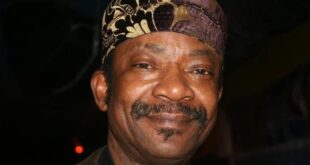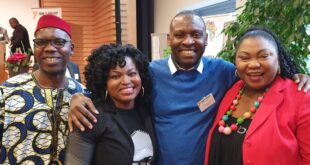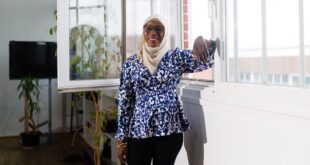“Human progress is neither automatic nor inevitable… Every step towards the goal of justice requires sacrifice, suffering, and struggle; the tireless exertions and passionate concern of dedicated individuals,”
– Martin Luther King Jr
—————————
Hamado Dipama won a major victory over housing discrimination in Germany on 10 December.
We all know how frustrating it’s when looking for an apartment and you find one that you like and can afford but which you cannot have simply because you’re of African descent or a person with a migrant origin.
An Augsburg court ruled on Tuesday (10 December) against a German landlord for refusing to rent his apartment to Hamado because he’s a “foreigner”. It’s symbolic that the verdict was delivered on 10 December, the International Human Rights Day.
The landlord had explicitly stated in his advertisement that the apartment was only available to would-be German tenants, in clear violation of the country’s General Law on Equality.
Hamado Dipama, who is originally from Burkina Faso, called the landlord who hung up on him as soon as he knew that the caller was of foreign origin. Hamado’s friends, who’re native Germans, then called the same landlord to be told the apartment was available.
With these witnesses, Hamado complained to the authorities and took the case to court, which ruled the discriminatory behaviour illegal and ordered the landlord to pay 1,000 euros to Hamado Dipama in damages. The judge warned the landlord against such behaviour in the future, which could attract a fine of up to 250,000 euros and even a jail sentence.

Of course, the Augsburg court victory will not end housing discrimination in Germany, but it will definitely make other landlords think twice before discriminating against prospective tenants on account of their national origin, religion or other social identities.
Sceptics are quick to say that discrimination is difficult to prove in such cases. Yes, it’s very difficult to prove discrimination in court but it can be proved. Hamado has shown how it could be done, setting an example from which disadvantaged groups will definitely take a cue.
It’s important for people affected by racism and discrimination to complain. There’re laws that protect them and where existing laws are inadequate they have a duty to fight for more effective laws to be made. Without Black people standing up, society cannot know how much they’re suffering. The major lesson from other countries such as the UK and the US is that disadvantaged groups have to challenge obstacles to their well being otherwise nothing would change.
Hamado Dipama, who is involved in the Foreigners Advisory Council of the City of Munich and the Bavarian Refugee Council, has been a gallant fighter against racism and discrimination and for the protection of refugee rights for many years. For example, he has won court cases against discotheques in Munich for refusing to let in dark-skinned prospective patrons, in clear violation of the law.
Hamdado is also the founder of Pan-Africanism Working Group Munich (Arbeitskreis Panafrikanismus München e.V. or AKPM) – an organization that promotes Pan-Africanism from Munich but with a global reach.

The flagship event of the organisation is the biannual Pan-African Congress that has achieved renown in Africa, Europe and the Americas. Topics of global interest are discussed at the special gatherings and resolutions issued.
The self-awareness of people of African descent as members of a group with shared, painful experiences of slavery, colonialism and racism is at the heart of the global Black community.
AKPM believes that this shared identity imposes on people of African descent a duty to work together to find solutions to problems arising from their collective history.
From his activities, Hamado could be described as a dedicated soldier for Black dignity and progress.
It’s important that the community of people of African descent in Germany recognises Hamado Dipama and many others like him, who’re active in the struggle for Black dignity in Germany, for we’re all beneficiaries of the fruits of their labour.
It’s also important that we recognise them to serve as role models for other prospective heroes in our community because the destiny of a people is determined by the quality of its heroes.
Like Martin Luther King Jr, the legendary African-American civil rights leader, once said, “Human progress is neither automatic nor inevitable… Every step towards the goal of justice requires sacrifice, suffering, and struggle; the tireless exertions and passionate concern of dedicated individuals.”
I admire Hamado Dipama’s convictions. I salute his courage!
Femi Awoniyi
READ ALSO German court rules against landlord who refused to rent to an African
 THE AFRICAN COURIER. Reporting Africa and its Diaspora! The African Courier is an international magazine published in Germany to report on Africa and the Diaspora African experience. The first issue of the bimonthly magazine appeared on the newsstands on 15 February 1998. The African Courier is a communication forum for European-African political, economic and cultural exchanges, and a voice for Africa in Europe.
THE AFRICAN COURIER. Reporting Africa and its Diaspora! The African Courier is an international magazine published in Germany to report on Africa and the Diaspora African experience. The first issue of the bimonthly magazine appeared on the newsstands on 15 February 1998. The African Courier is a communication forum for European-African political, economic and cultural exchanges, and a voice for Africa in Europe.











